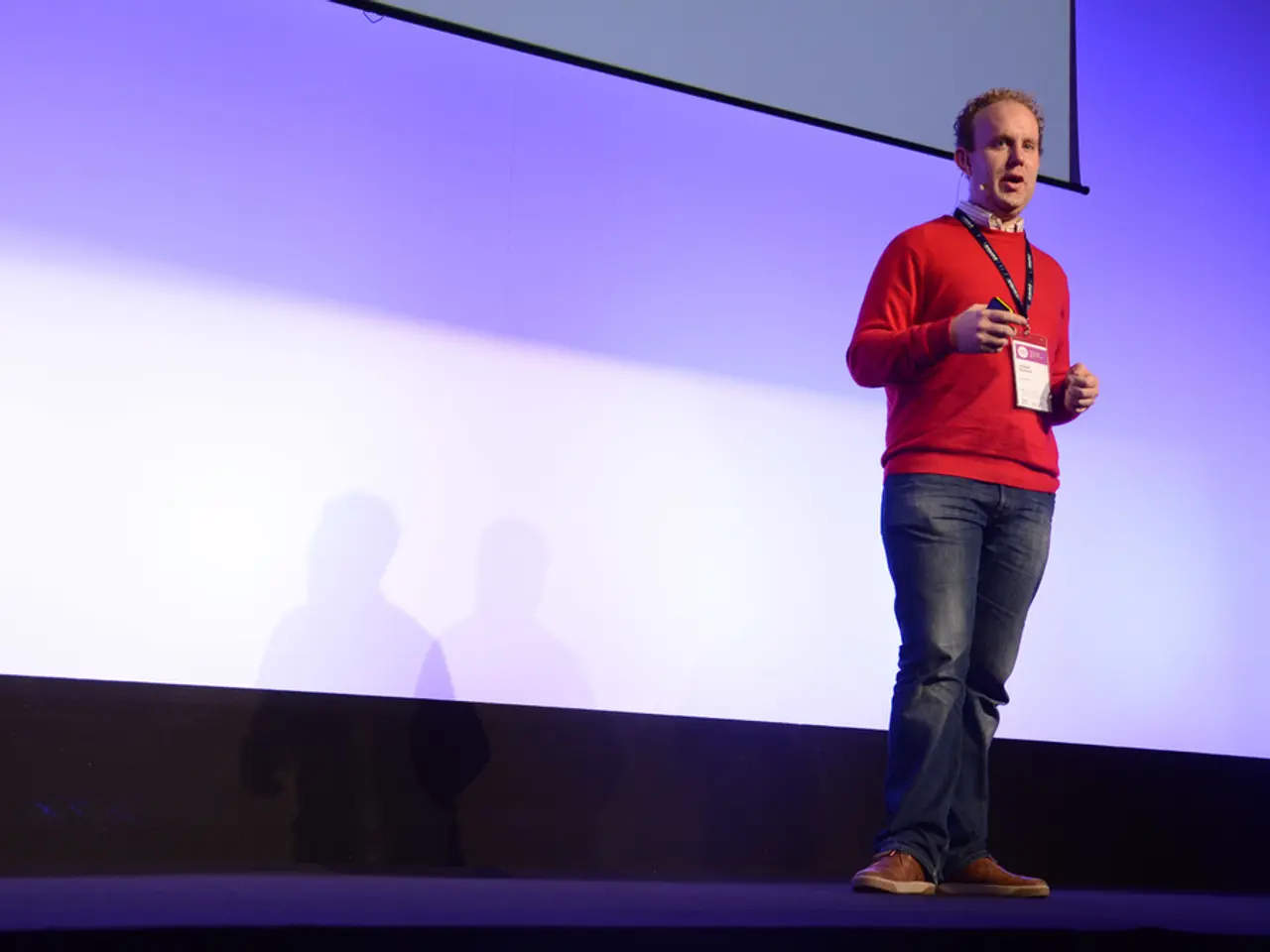US President Trump alters his stance regarding the Intel CEO in response to the intense US-China standoff over semiconductor technology.
In a surprising turn of events, US President Donald Trump met with Intel CEO Lip-Bu Tan at the White House, following Trump's call for Tan's resignation over alleged China ties. The meeting, which took place on a day when Intel shares jumped roughly 3.5% on Monday, signalled a shift towards engagement rather than confrontation.
The initial demand for Tan's resignation was prompted by concerns raised by Senator Tom Cotton about Tan’s investments and connections to semiconductor firms linked to the Chinese Communist Party and the People’s Liberation Army. However, the meeting included other cabinet members and resulted in Trump signalling a willingness to work with Tan and Intel.
Trump described the meeting as "a very interesting one" and praised Tan's "amazing story," indicating a change in his stance. He further stated that Tan and his Cabinet members would spend time together to bring suggestions to him in the following week.
Intel issued statements emphasizing their commitment to U.S. technology and manufacturing leadership and expressed appreciation for the President’s leadership. Tan himself highlighted his full support for advancing U.S. national and economic security despite the initial controversy.
The meeting reflects a change from demanding resignation to constructive engagement, likely aiming to support Intel's role in U.S. technology leadership while addressing national security concerns through dialogue and collaboration.
Intel, once the undisputed leader in microchip production, has struggled in recent years and lost ground to Asian rivals, particularly Taiwan's TSMC and South Korea's Samsung. Repeated delays in rolling out Intel's 10-nanometer and 7-nanometer processors have also contributed to its falling behind its competitors.
Lip-Bu Tan, a Malaysian-born US citizen, has been accused of having ties to Chinese firms with alleged links to the Chinese Communist Party and the People’s Liberation Army. Tan served as a seed investor in SMIC, China's largest chip foundry, and was a member of its board from 2001 to 2018. SMIC later came under US sanctions for its close ties to the Chinese military.
The ongoing US-China tech rivalry is putting pressure on Intel, with Washington pushing for domestic capacity while restricting Chinese access to advanced chips. In the statement, Intel stated that it looks forward to working closely with Trump and his administration to restore the company.
In July 2021, Cadence Design Systems, a company previously led by Tan, reached a plea deal with the government over allegations of illegal exports to China's National University of Defense Technology, a military-linked institution.
President Trump's call for Tan's resignation last week resulted in Intel's shares dropping more than 3% during intra-day trading. However, Intel shares were up 2.9% in pre-market trading on Tuesday, following the announcement of the meeting between Trump and Tan.
The meeting between Trump and Tan is a significant development in the ongoing saga of US-China tech relations and Intel's role in the global electronic chip market. It remains to be seen how this engagement will shape the future of Intel and the tech industry as a whole.
- The meeting between Trump and Intel CEO Lip-Bu Tan signaled a shift in the business-politics landscape, easing the pressure from the ongoing US-China tech rivalry and potentially offering Intel a chance to re-establish its role in the global technology leadership.
- Amidst general-news discussions about the future of US technology manufacturing, the conversation surrounding Intel becomes particularly relevant, given its financial implications and the technology sector's broad connections to policies and international relations.




